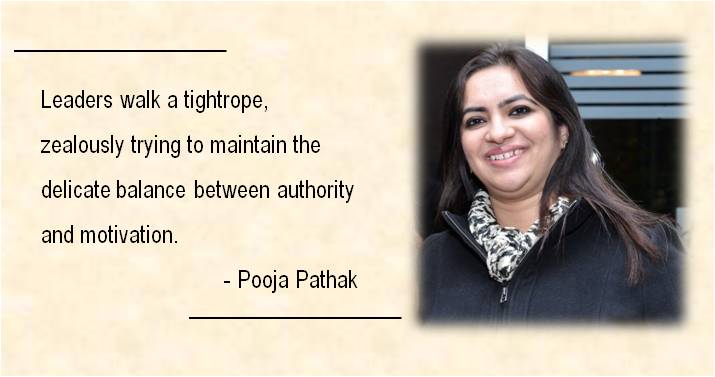“Champions aren’t made in gyms. Champions are made from something they have deep inside them — a desire, a dream, a vision. They have to have the skill, and the will. But the will must be stronger than the skill.” – Muhammad Ali
A team implies synergy, representing individuals working collectively towards a common goal. At a certain juncture, every leader has to deal with the lacklustre performance of a team member. The notorious will v/s skill issue is a common issue at workplace, and can affect anyone, from a fresher to an industry veteran, leading to severe repercussions on the overall performance of the organisation.
Leaders walk a tightrope as they zealously try to maintain the delicate balance between authority and motivation. It is the role of the leader to recognise and work progressively to make the team work as a cohesive unit. Before you pull the strings to coach the team, you need to recognise your players, weighing their strengths and weaknesses diligently. Looking at their skill v/s will makeup can help in determining what approaches to take and how you want to structure your team.
Skill v/s Will
When dealing with a low-performing team, first determine if they have the WILL to complete their specific tasks or the SKILL to succeed. Skill is the combination of an individual’s aptitude, natural talent, training and experience, whereas, will is the desire to achieve; the incentive to complete the task effectively. An individual with a skill issue can be helped by adequate training and coaching in the specific area of need. Resolving problems related to will is more challenging.
Killing it with Will
As a leader, there is an entrepreneurial fire burning strong inside that motivates you to work harder each day. Unfortunately, the same cannot be applied to your employees. Sometimes, even the best leaders have to think outside the box to find creative and reliable ways to motivate disengaged, unfocused and underperforming employees.
Here are top 5 ways to keep your team motivated and encouraged:
- Self-esteem is a self-reinforcing characteristic. People who have high self-esteem are more likely to continuously improve the work environment as they are assured that they are more capable, appreciated, competent and contributing. They are willing to take intelligent risks and work in teams eagerly because they have confidence in their ideas and competence
- Provide positive and regular reinforcement, rewards, and recognition to encourage and highlight the standards you believe your team members are capable of achieving
- Learn what they feel good and positive about doing. Maximize their opportunity to contribute in these activities
- Provide frequent feedback to acknowledge and appraise their qualities and correct the shortcomings that need improvement
- Assign projects that stimulate growth and challenge them.
Conclusion:
Astute business managers recognise that employee behaviour is not an individual’s sole responsibility, but rather something that both parties need to work on together. Even the chronicles of history’s best leaders, whether they led a company or a nation, highlight the importance of motivation and how leaders have to consistently influence and guide people in the right direction to achieve larger goals.







Skill vs will issue need to understand more.